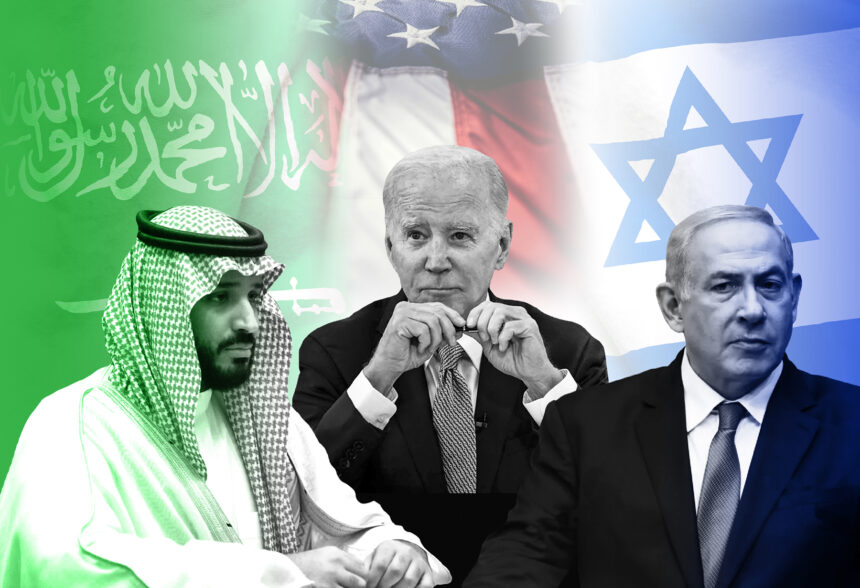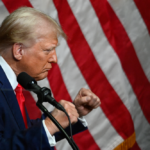The article explores the notion of a “new Axis of Evil” and proposes that it should be examined from a distinct critical perspective, diverging from the conventional approach. The text provides a critical analysis of the term’s historical usage, which was initially introduced by George W. Bush to encompass Iran, Iraq, and North Korea. It contends that the actual threat exists in a different location.
Summary:
The phrase “Axis of Evil,” initially coined by President George W. Bush to designate Iran, Iraq, and North Korea, was meant to draw parallels with the historical Axis powers and provide a rationale for the United States’ military intervention in Iraq. The paper contends that this framework constituted a larger propaganda campaign that disregarded the actual repercussions of US foreign policy, such as the destabilization of Iraq and the wider Middle East.
The article offers a critical analysis of Western media narratives, which tend to prioritize the perceived threats posed by China and Iran, while neglecting to acknowledge the consequences of US activities. The argument posits that the true “axis of evil” could be more precisely shown by the repercussions of United States foreign policy, namely in the Middle East. This encompasses the provision of weaponry to Israel and Saudi Arabia, which have played a role in exacerbating substantial humanitarian emergencies in Gaza and Yemen.
The article advocates for a reevaluation of the individuals or entities that should be seen as genuinely perilous and disruptive. It proposes that attention should be directed into the behaviours and consequences of influential nations, rather than being fixated on biased accounts of malevolence.
Just who are the real members of the new ‘axis of evil’?
There are many other such media examples, but you get the idea.
However, there is another axis that is even more dangerous and destabilising. It’s this one, I argue, that the rest of the world should be much more alarmed by. But first, a word about the phrase and the power of its word association.
The infamous phrase was first used by former US president George W. Bush to include Iran, Iraq under Saddam Hussein and North Korea. It was meant to invoke the old Axis powers of imperial Japan, Nazi Germany and fascist Italy. It was part of Bush’s propaganda campaign to justify the coming US invasion of Iraq after the 9/11 terrorist attacks in 2001, ostensibly to destroy nonexistent weapons of mass destruction, end the dictatorship of Saddam and bring democracy to the Iraqi people. In the event, the invasion and occupation completely destroyed Iraqi society, from which it has yet to recover.
Iraq had nothing to do with 9/11; most of the terrorists on that day were actually from Saudi Arabia. And, it’s worth remembering that like many third world dictators, Saddam was, at one point, a creature of US foreign policy serving as a bulwark against Shia Iran.
The destruction of Saddam and his entire clan removed that bulwark, and created the perfect opportunity for Iran to expand across the Middle East, hence the current predicament of the US and Israel vis-à-vis Tehran.
US foreign policy in the Middle East since 9/11 has left the region in a prominent state of instability, war and conflict. Unfortunately, that’s not the story we are being told.
We have long been conditioned by the global mainstream, which in the words of Western media is not to trust what we actually see and hear but what we are told. And what we are told 24/7 is that China wants to take over Asia, undermine the “rules-based” international system, destroy democracies everywhere, and generally snuff out liberty wherever it exists anywhere around the world.
Frankly, Beijing has neither the inclination nor ability to do all or any of that.
What we actually see and hear is that the world’s only real superpower, the United States, has been helping to blow up the Middle East, prolong the worst military conflict in Europe since the second world war and now re-export all that mayhem and destruction to the Asia-Pacific, the only real growth engine in the world economy, a region of relative peace and prosperity.
Has Iran or China lately committed any massacre or genocide, destroyed whole countries and societies, or created two of the 21st century’s worst humanitarian crises in the Middle East or anywhere else?
Xinjiang, you say? Sure, the US manages to find genocide there but not in Gaza. If you really believe that, I have a foolproof investment to sell you and make you rich.
I wonder who’s going to be at the receiving end of those weapons, at a time when the Palestinian death toll in Gaza has exceeded 40,000 (or 2 per cent of the whole population)? Israel now stands accused of war crimes, crimes against humanity and genocide at the International Criminal Court (ICC) and the International Court of Justice, and also interfering with and intimidating the ICC’s chief prosecutor (both the previous and current ones) and their staff.
If you arm a mass murderer, shouldn’t you also be held criminally responsible?
But let’s not just pick on Israel, as its defenders are always complaining. What about Saudi Arabia?
The Joe Biden administration is conducting brisk arms sales to two of its closest allies in the Middle East this month. It has just lifted its 2021 suspension of offensive arms shipments to the kingdom.
Details are sketchy but US news reports say it will start with an initial shipment of air-to-ground munitions, to be followed by additional new transfers “on a typical case-by-case basis”, US defence officials were quoted as saying.
Someone refresh my memory, please. Didn’t Biden come to office vowing to turn the Saudi government into “a pariah state”? That was not only for the 2018 gruesome murder and dismemberment of dissident journalist Jamal Khashoggi inside the Saudi consulate in Istanbul, but also the Saudis’ (alleged) indiscriminate targeting of civilians during the civil war in Yemen, with American weapons, of course, and sometimes with logistical support as well.
Like Israel’s war in Gaza today, Riyadh’s air war in Yemen over the past decade killed tens of thousands, displaced millions, and caused near or real famine conditions in large parts of the country.
At least Israel can claim to be a democracy; Saudi Arabia is a proud theocratic monarchy. We are told constantly how badly Iran treats its womenfolk, but Tehran is positively feminist compared with the treatment of women in the sandy kingdom.
So, the new axis of evil? I wonder who really qualifies to join.
By: Alex Lo
Source: South China Morning Post







